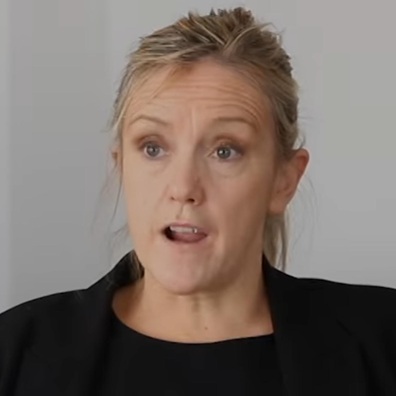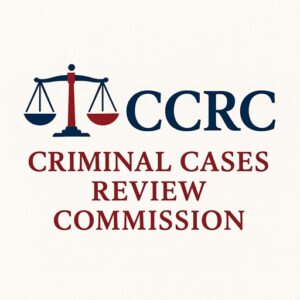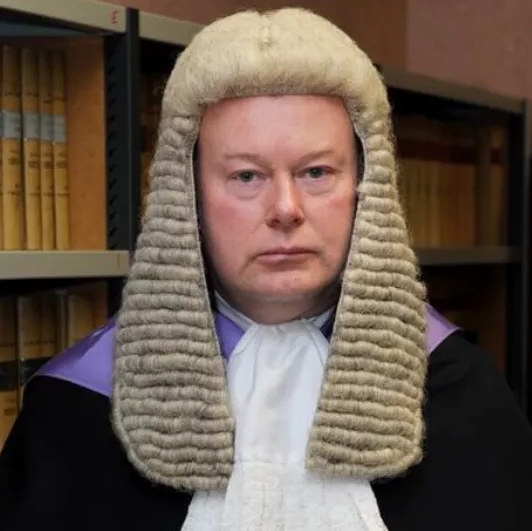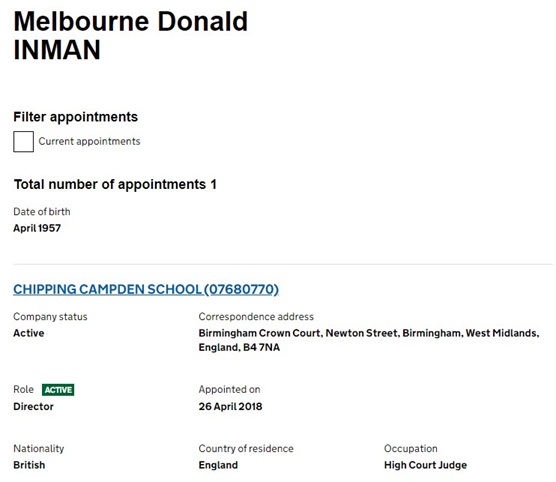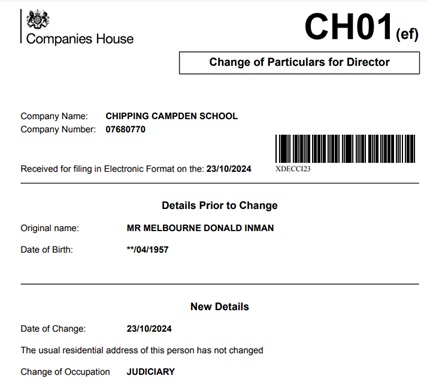Her Honour Judge Angela Rafferty KC handed Farhad Mohammad a three-year community order at the Old Bailey on the 23rd October 2024 after he was found guilty of two charges of funding terrorism by making money transfers to his nephew in Syria.
HHJ Rafferty also ordered him to complete 250 hours of unpaid work, to be subject to an electronically monitored curfew and complete a 30-day rehabilitation activity requirement.
The Sentencing Council publish sentencing guidelines for Funding terrorism which comes under the Terrorism Act 2000, s.15, Terrorism Act 2000, s.16, Terrorism Act 2000, s.17, Terrorism Act 2000, s.18.
There was online criticism that the sentence handed down for a terrorism offence was deemed to be too lenient :-
It is assumed Farhad Mohammad demonstrated Culpability C (Performed limited function under direction – Very little or no planning) and Harm was Category 3 (Money or property made, or was likely to make, a minor contribution to furthering terrorism).
It would appear that the sentence handed down by the honourable judge Rafferty to Farhad Mohammad for Funding Terrorism was in line with the Sentencing Council guidelines.
Terrorist groups rely on financial support and funding to be able to operate. While Mohammad’s contributions may not have been vast sums, he was well aware his nephew wanted the money to purchase a firearm and to help fund his fighting in Syria.
Commander Dominic Murphy – Met Police Counter Terrorism Command
Counter Terrorism Policing need your help to stop terrorists being able to plan, prepare and carry out attacks, groom or recruit people or encourage others to carry out attacks. You may have seen or heard something that could be that vital piece of information that will help to stop a terrorist attack. Report Online, contacting the police in confidence on 0800 789 321 or in an emergency 999.
HHJ Rafferty is shown on the List of Circuit Judges published on the Courts and Tribunal Judiciary website. Her Honour Judge Rafferty is a Circuit Judge.
| Her Honour Judge Angela Margaret Mary Rafferty KC | London | 07-01-2019 |
Former Chair of the Criminal Bar Association HHJ Angela Rafferty KC is a specialist in grave high profile criminal cases nationwide involving the vulnerable, including young people with mental and physical disabilities, and frequently represents women accused of homicide and young people accused of serious sexual offences in this and other jurisdictions.
In conversation with HHJ Angela Rafferty KC – Justice.org.uk
The Judicial Appointments Commission (JAC) selects candidates for judicial office in England and Wales, and for some tribunals with UK-wide powers. The JAC is made up of 15 Commissioners, supported by a Senior Leadership Team, Panel Members and around 90 staff.
Her Honour Judge Angela Rafferty KC was appointed to the JAC as a Judicial Commissioner on the 9th June 2024. Angela was called to the Bar in 1995, appointed a Recorder in 2009 and took silk in 2015. Since 2019, Angela has sat as a Senior Circuit Judge in the Central Criminal Court.
Her Honour Judge Angela Rafferty KC – Judicial Appointments Commission
HHJ Angela Rafferty KC was the trial judge at the Old Bailey for three people who were subsequently jailed for murdering a vulnerable woman they “treated like a slave” by starving, torturing and beating her. HHJ Rafferty sentencing remarks were published on the 1st March 2024. The video was published on the 5th March 2024.
HHJ Angela Rafferty appeared on the Bar Council of England Wales YouTube Channel in 2017 for International Women’s Day.
Through their distinguished track record and their pre-eminent place in the legal world, our new visiting professors will bring the law to life along with giving our students a real time appreciation of its impact both intellectually and professionally
HHJ Angela Rafferty to join Goldsmiths’ Department of Law as a visiting Professor.
The three key values which are central to the role of judicial office holders (JOHs) in England and Wales are:
• Independence
• Impartiality
• Integrity
“Publicity is the very soul of justice. . . . It keeps the judge himself, while trying, under trial….Where there is no publicity there is no justice”
Jeremy Bentham – Mr Justice Cobb: ‘Justice must be seen to be done’
Image of HHJ Rafferty : Bar Council of England and Wales (Screenshot)
Check out our articles on Mr Justice Williams, Dodgy Judges, His Honour Judge Melbourne Inman KC, His Honour Andrew Menary KC, His Honour Judge Guy Kearl, His Honour Now His Dishonour, His Honour Judge Michael Slater, His Honour Judge Martin Davis, HHJ Farquhar, HHJ Bedford, DDJ Nicholes, Judge Pinder, Do you Have to Bow to a Judge ?, Can you Email a Judge ?, Can you Criticise a Judge ? and the highly dubious Sussex Family Justice Board.
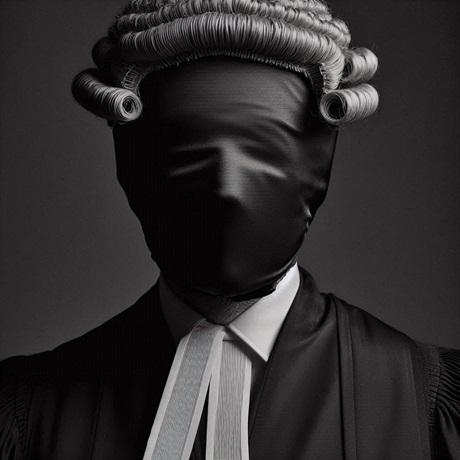




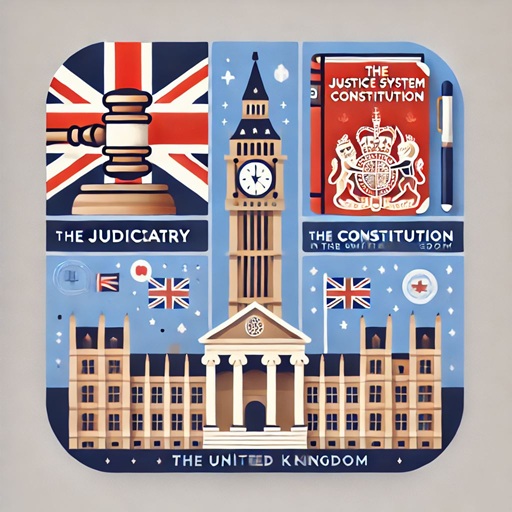
The Ministry of Injustice is not the Ministry of Justice nor is it affiliated in any way with the justice system, legal profession or any law enforcement agencies.
Most Popular ↓




What is Policing by Consent ? What is Two Tier Policing ?
Latest Articles ↓
- Can a Solicitor or Barrister Mislead a Court ?In England and Wales, the legal system demands integrity and truth from all legal professionals involved in court proceedings. Solicitors and barristers are bound by… Read more: Can a Solicitor or Barrister Mislead a Court ?
- What is the Forensic Science Regulator ?Forensic science is a cornerstone of modern criminal justice, providing critical evidence that can make or break a case. However, the reliability and accuracy of… Read more: What is the Forensic Science Regulator ?
- What is the Criminal Cases Review Commission ?The Criminal Cases Review Commission (CCRC) stands as a vital institution within the criminal justice system, dedicated to investigating potential miscarriages of justice. Established in… Read more: What is the Criminal Cases Review Commission ?
- Did Bobby Vylan and the BBC break the law at Glastonbury 2025 ?The performance by Bob Vylan at Glastonbury 2025, where frontman Bobby Vylan (reportedly Pascal Robinson-Foster) led chants of “death, death to the IDF” and “from… Read more: Did Bobby Vylan and the BBC break the law at Glastonbury 2025 ?
All Articles can be found in the Legal Blog or Sitemap.
You should always seek formal legal advice from a qualified and reputable lawyer (solicitor or barrister).
‘Justice delayed is justice denied’
William Ewart Gladstone
There are a number of links to Free and Paid For Legal Resources and Legal Organisations on the Free Legal Advice , Legal Aid and Pro Bono pages.
